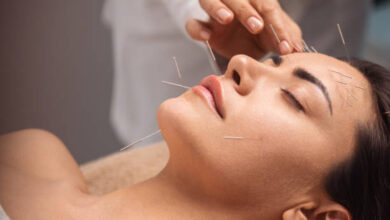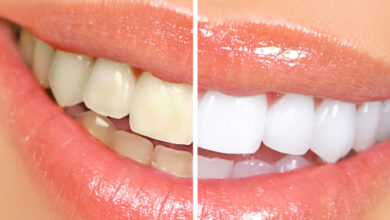What to Avoid While Taking Doxycycline for Acne

Doxycycline Monohydrate 100 mg Tablet is a widely used antibiotic that belongs to the tetracycline class of medications. It is commonly prescribed to treat various conditions, including acne. While it can be effective in reducing acne and preventing new breakouts, there are specific precautions and interactions to be aware of when taking doxycycline. This article will explore what to avoid while taking doxycycline for acne, ensuring you maximize its benefits and minimize potential side effects.
Understanding Doxycycline
Before delving into what to avoid, it’s essential to understand how doxycycline works. Doxycycline functions by inhibiting the growth of bacteria and reducing inflammation. In the case of acne, it targets the bacteria Propionibacterium acnes, which contribute to acne formation. Doxycycline can also help reduce the inflammation associated with acne lesions.
Common Uses of Doxycycline for Acne
Doxycycline is typically prescribed for moderate to severe acne that hasn’t responded well to topical treatments. It is often part of a broader acne treatment plan that may include topical retinoids and other medications. The duration of treatment can vary, but it usually lasts several weeks to months, depending on the individual’s response. You can also take Accutane Generic to get acne free skin.
What to Avoid While Taking Doxycycline
To ensure the effectiveness of doxycycline and to avoid unwanted side effects, it is crucial to be mindful of certain factors. Below are the primary considerations for what to avoid while taking doxycycline for acne.
1. Dairy Products
One of the most significant interactions with doxycycline involves dairy products. Calcium in dairy can bind to doxycycline, reducing its absorption in the gastrointestinal tract. This interaction can lead to decreased effectiveness of the medication. Therefore, it’s advisable to avoid milk, cheese, yogurt, and other dairy products for at least two hours before and after taking doxycycline.
2. Antacids and Supplements
Antacids, particularly those containing aluminum, magnesium, or calcium, can also interfere with the absorption of doxycycline. Additionally, certain supplements that contain calcium or iron can reduce the medication’s effectiveness. It is best to avoid taking these products within two hours of taking doxycycline.
3. Sun Exposure
Doxycycline can increase your skin’s sensitivity to sunlight, leading to a higher risk of sunburn and skin damage. To protect your skin while on doxycycline:
- Avoid direct sunlight during peak hours (10 a.m. to 4 p.m.).
- Wear protective clothing, such as long sleeves and wide-brimmed hats, when outdoors.
- Use sunscreen with a high SPF (at least 30) to shield your skin from UV rays.
4. Certain Medications
Some medications can interact with doxycycline, potentially altering its effectiveness or increasing the risk of side effects. These include:
- Blood thinners: Doxycycline may enhance the anticoagulant effects of warfarin, increasing the risk of bleeding.
- Anticonvulsants: Drugs like phenobarbital and phenytoin can decrease the effectiveness of doxycycline.
- Other antibiotics: Combining doxycycline with other antibiotics may lead to decreased effectiveness or increased risk of side effects.
Always inform your healthcare provider about any other medications you are taking to avoid potential interactions.
5. Pregnancy and Breastfeeding
Doxycycline is generally not recommended for pregnant or breastfeeding women due to potential risks to the developing fetus or infant. In pregnancy, it can affect the growth of bones and teeth. If you are pregnant, planning to become pregnant, or breastfeeding, consult your healthcare provider for alternative treatment options.
6. Alcohol Consumption
While moderate alcohol consumption may not significantly interfere with doxycycline’s effectiveness, excessive drinking can increase the risk of liver damage and gastrointestinal side effects. It’s best to limit or avoid alcohol while taking doxycycline, especially if you experience gastrointestinal discomfort.
7. Using Certain Topical Treatments
While doxycycline is an effective oral treatment for acne, using certain topical treatments in conjunction may not always be advisable. For example:
- Benzoyl peroxide: This common acne treatment can cause excessive dryness and irritation when used alongside doxycycline. If you choose to use benzoyl peroxide, consult your dermatologist for guidance on how to use them together effectively.
- Retinoids: Topical retinoids may also increase skin sensitivity. Consult your dermatologist to determine the best combination for your acne treatment plan.
8. Skipping Doses
Consistency is vital when taking doxycycline. Skipping doses or not taking the medication as prescribed can lead to antibiotic resistance and a reduced effectiveness in treating acne. If you miss a dose, take it as soon as you remember unless it’s almost time for the next dose. Never double up on doses to catch up.
General Tips for Taking Doxycycline
Here are some general tips to keep in mind while taking doxycycline:
- Take with plenty of water: Always take doxycycline with a full glass of water (at least 8 ounces) to help prevent irritation of the esophagus and promote better absorption.
- Follow dosage instructions: Take the medication exactly as prescribed by your healthcare provider. Do not exceed the recommended dosage or duration of treatment.
- Report side effects: If you experience severe side effects, such as persistent nausea, vomiting, severe headache, or signs of an allergic reaction (such as rash, itching, or difficulty breathing), contact your healthcare provider immediately.
- Regular check-ups: Schedule follow-up appointments with your healthcare provider to monitor your progress and adjust your treatment plan if necessary.
Conclusion
Doxycycline can be an effective treatment option for acne, helping to reduce bacteria and inflammation associated with the condition. However, it is essential to be aware of what to avoid while taking this medication to ensure its effectiveness and minimize side effects.
Avoiding dairy products, certain medications, and excessive sun exposure, along with being mindful of interactions with antacids and supplements, will enhance your treatment experience. Always consult your healthcare provider for personalized advice and recommendations tailored to your specific situation. With proper precautions, you can maximize the benefits of doxycycline and achieve clearer skin while effectively managing your acne.





